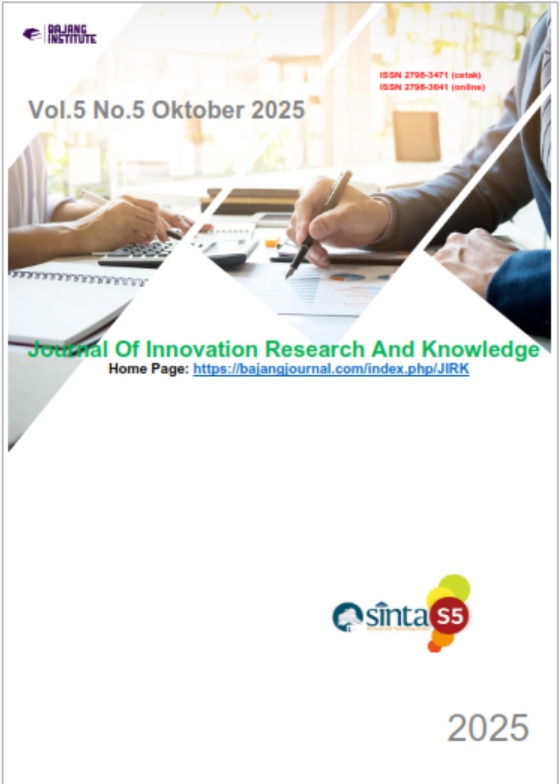THE GENERATIVE AI DISRUPTION: A BIBLIOMETRIC ANALYSIS of ARTIFICIAL INTELLEGENCE TRANSFORMATIVE IMPACT ON HOSPITALITY RESEARCH AND PRACTICE
Abstract
This study provides a comprehensive bibliometric analysis of Artificial Intelligence's transformative impact on hospitality research. Utilizing 3,993 documents from the Scopus database (2011-2025), we map the field's intellectual structure and evolution. Findings reveal exponential publication growth since 2017 and a structure defined by foundational "Basic Themes" (e.g., machine learning) and peripheral "Niche Themes" (e.g., human studies). Critically, the analysis reveals a conspicuous absence of "Motor Themes," indicating the field, while vibrant, lacks a mature, driving research agenda. This paper charts the field's evolution and proposes a data-driven agenda for future inquiry.
References
Richards, G. (2023). Generative AI and the transformation of the guest experience. Annals of Tourism Research, 98, 103512.
Service Sector Outlook. (2024). Workforce Transformation in the Digital Era. Global Economics Publishing.
Sharma, A., & Gupta, R. (2024). Human-AI collaboration and talent retention in the service industry. Journal of Service Management, 35(1), 88-105.
Zubair, A., & O'Connor, P. (2024). Ethical challenges of generative AI in hospitality: Privacy, bias, and job displacement. Ethics and Information Technology, 26(2), 1-15.
Aria, M., & Cuccurullo, C. (2017). bibliometrix: An R-tool for comprehensive science mapping analysis. Journal of Informetrics, 11(4), 959–975.
Donthu, N., Kumar, S., Mukherjee, D., Pandey, N., & Lim, W. M. (2021). How to conduct a bibliometric analysis: An overview and guide. Journal of Business Research, 133, 285–296.
Falagas, M. E., Pitsouni, E. I., Malietzis, G. A., & Pappas, G. (2008). Comparison of PubMed, Scopus, Web of Science, and Google Scholar: Strengths and weaknesses. The FASEB Journal, 22(2), 338–342.
Buhalis, D., & Leung, D. (2023). The future of hospitality in the age of generative AI: A strategic roadmap. Tourism Management Perspectives, 48, 101145.
Ivanov, S., & Webster, C. (2023). The scope and limitations of AI in hospitality: A critical review. International Journal of Contemporary Hospitality Management, 35(7), 2341-2365.
Li, J., & Wu, B. (2023). Machine learning applications in hospitality research: A systematic review and future agenda. Journal of Hospitality and Tourism Technology, 14(3), 450-472.
Zeng, B., & Gerritsen, R. (2024). A new era of crisis management: The role of AI and big data in post-pandemic tourism recovery. Annals of Tourism Research, 99, 103520.
Cobo, M. J., López-Herrera, A. G., Herrera-Viedma, E., & Herrera, F. (2011). Science mapping software tools: A review, analysis, and cooperative study. Journal of the American Society for Information Science and Technology, 62(7), 1382–1402.
Donthu, N., Kumar, S., & Pattnaik, D. (2020). Forty-five years of Journal of Business Research: A bibliometric analysis. Journal of Business Research, 109, 1–14.
Bradford, S. C. (1934). Sources of information on specific subjects. Engineering, 137, 85–86.
Cobo, M. J., López-Herrera, A. G., Herrera-Viedma, E., & Herrera, F. (2011). Science mapping software tools: A review, analysis, and cooperative study. Journal of the American Society for Information Science and Technology, 62(7), 1382–1402.
Falagas, M. E., Pitsouni, E. I., Malietzis, G. A., & Pappas, G. (2008). Comparison of PubMed, Scopus, Web of Science, and Google Scholar: Strengths and weaknesses. The FASEB Journal, 22(2), 338–342.
Merton, R. K. (1968). Social Theory and Social Structure. Free Press.
Orlikowski, W. J. (1992). The Duality of Technology: Rethinking the Concept of Technology in Organizations. Organization Science, 3(3), 398–427.
Porter, M. E. (1985). Competitive Advantage: Creating and Sustaining Superior Performance. Free Press.
Price, D. J. de S. (1963). Little Science, Big Science. Columbia University Press.
Zubair, A., & O'Connor, P. (2024). Ethical challenges of generative AI in hospitality: Privacy, bias, and job displacement. Ethics and Information Technology, 26(2), 1-15.















